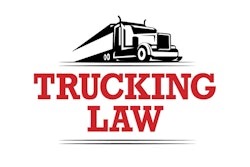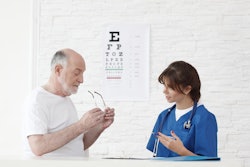Experiencing an accident is every owner-operator’s worst nightmare, and in the heat of the moment it can be easy for even professionals to act against their best interests. While it’s right to offer aid or comfort to parties to the accident, keep your wits about you. Because the second you get involved in an accident, you need to begin to legally protect yourself.
In the video above, part of Overdrive’s long-running Trucking Law series, find advice from attorney Brad Klepper and others about how to approach information-gathering and support in the immediate wake of an accident. There, we expand on these four tips:
- Be mindful of information you volunteer.
- Ensure an established procedure is followed to a tee, whether that’s your leasing carrier’s safety-department procedure or your own, supported by your insurer, if you’re independent.
- Gather key contact information and visual records at the scene.
- Record your story of the crash and scene in the immediate aftermath for possible future use.
More crash-related resources in Overdrive:
- How to confront post-crash litigation threat -- start at the scene of the crash
- When trying to help at an accident scene can hurt you instead
- After the worst happens: Nuclear-verdicts threat rolls downhill to owner-ops, small fleets
- DataQs: Efforts to make truckers more than just victims of the crash, inspection review process
Experiencing an accident is every owner-operator's worst nightmare, and in the heat of the moment, it can be easy for even professionals to act against their best interests. While it's right to offer aid and comfort to parties to the accident, keep your wits about you because the second you get involved in an accident, you need to begin to legally protect yourself.
In this trucking law installment from Overdrive, advice from attorney Brad Klepper points the way toward a few steps to take. In almost every case, drivers should protect themselves by being very careful with what they do and the information they volunteer at the scene of a crash.
Let's say you're involved in an accident that results in serious injury to another person. If you feel you are not at fault, your instinct may be to cooperate fully with law officers. After all, you're a professional with nothing to hide. An officer asks questions so you respond, think you're being helpful. Three days later, the injured person dies. The prosecutor decides to file a vehicular homicide charge against you. The slightest details could later be turned against you in court.
If you're employed by a carrier or leased, be sure your company's accident related procedures are followed. Even if you are familiar with the company's procedure, and you should be, one of the first things you should do when you are involved in an accident is to call the company and ask what they want you to do. You may be excited and you may be scared, but a big part of any safety department's job is to handle accidents, so follow their instructions. If you're an independent owner-operator with your own authority, your insurance company may well be your best source of support.
Many insurers may not get their adjusters or investigative teams out to the scene of every crash themselves, but it's not unheard of. Once the scene is secured in terms of checking on any involved parties, a call to the insurer makes sense. That call can be passed through to an adjuster to help guide you through documenting necessary evidence.
You may want to collect information that could prove helpful to your own case. Snap some pictures of surroundings, vehicular damage, positions of all involved vehicles relative to each other, the highway and relevant signage such as a stop sign or traffic light. Also photograph other vehicles and people on the scene. Your smartphone is likely perfectly suited to these tasks. You want a picture of every car tag and person if you can get it, because you never know what they saw.
Next, collect potential witnesses' names and phone numbers. Don't try to talk to these people about the accident. You're not trained to interviewing people and you don't want to take the chance of accidentally hurting your own case in the event one of them ends up on a witness stand. You simply want contact information so that your company and defense lawyer can talk to them if litigation rears its head.
As soon as you've finished your responsibilities on the scene, one of the best things you can do is record. Whether as a voice message on your phone or as a written note, record everything that happened before, during, and after the incident. This information could be valuable to refresh your memory should you become a witness on the stand.
In court, data recorded at the time of the incident usually is considered more accurate than your memory months later. In addition, your written or recorded information appears more accurate in the court's mind than that of an investigating officer who deals with dozens of traffic stops and wrecks every week and yet has to recall the specifics of your incident months after it happened.
While some of this may seem extreme, you never know when an accident or even a basic traffic stop, major or minor, will land you in court defending yourself with an outcome that could destroy your future livelihood. You have only a brief window at the scene to collect information that could be of tremendous help to you.
For more advice on accidents, Brad Klepper's Interstate Trucker law firm is dedicated to defending drivers. He's also president of the services firm, Drivers Legal Plan. He can be reached via the websites for both companies. Find more resources and accident scene tips on Overdrive in our early 2022 three-part series on post crash litigation by searching how to confront litigation at the website.









